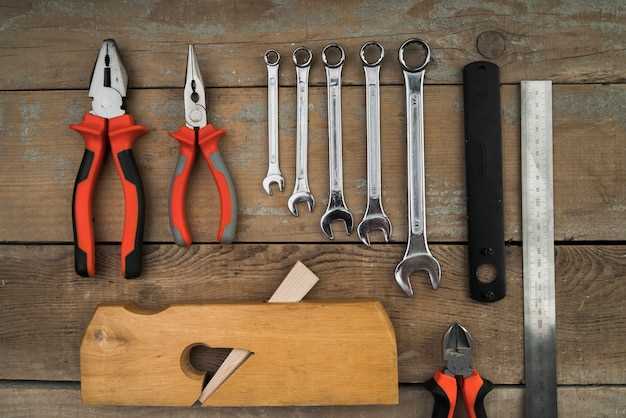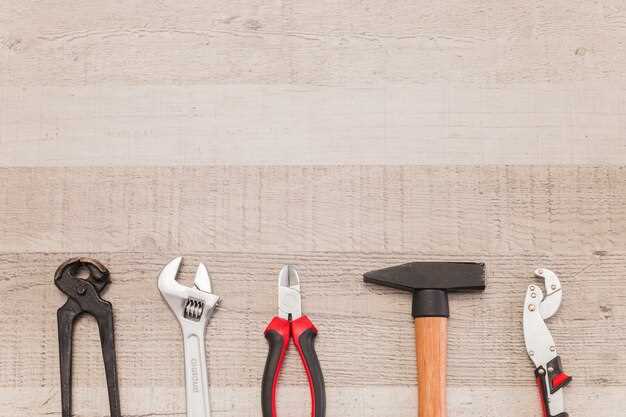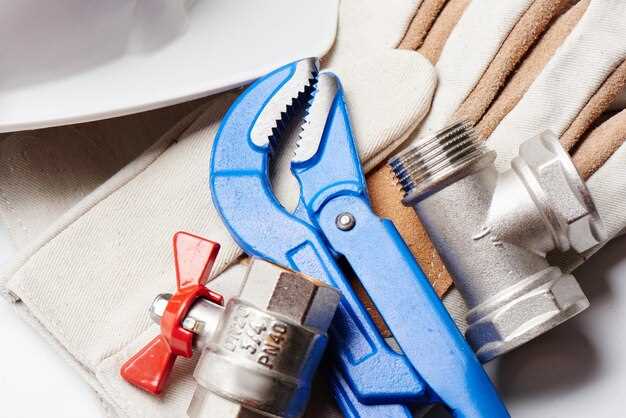
For anyone passionate about DIY projects and home repairs, having the right set of tools is crucial. Whether you’re changing oil in your car, fixing a leaky faucet, or tackling a larger renovation, the quality and variety of your tools can significantly influence the results. The home mechanic should be equipped with a versatile selection of instruments to handle a wide range of tasks efficiently and effectively. This article will guide you through the essential tools that every home mechanic should consider for their toolkit.
Investing in quality tools is not just about immediate repairs; it’s also about fostering a sense of empowerment and creativity in your home. The right tools can transform mundane repair tasks into engaging projects, allowing you to take pride in the work you accomplish. By understanding what tools are necessary, you can build a reliable collection that will aid you in your DIY endeavors for years to come.
From hand tools to power tools, there are certain fundamental items that should be in every home mechanic’s arsenal. Each tool serves a specific purpose that can make your repairs quicker and more efficient, encouraging a DIY spirit and making home maintenance accessible to everyone. Let’s explore the must-have tools that will set you up for success in your repair projects.
Choosing the Right Socket Set for Your DIY Projects

When embarking on any DIY project or repair, having the right tools is essential for efficiency and effectiveness. One crucial component of your toolbox should be a quality socket set. Choosing the right socket set can make all the difference in successfully completing your tasks.
First, consider the size and type of fasteners you will be working with. Socket sets typically come in both metric and SAE (Society of Automotive Engineers) sizing. Make sure to choose a set that includes both measurements if you plan to tackle various projects. This versatility will help ensure you have the appropriate size for any repair task.
Next, pay attention to the socket drive size, which commonly ranges from 1/4 inch to 1/2 inch. If your projects mainly involve smaller, delicate components, a 1/4 inch drive is suitable. For heavier-duty DIY work, such as automotive or large machinery repairs, look for a set with a 1/2 inch drive, which provides more torque and strength.
Additionally, examine the material and construction of the sockets. Chrome vanadium steel is a popular choice for its durability and resistance to rust. Consider whether you prefer deep or shallow sockets; deep sockets allow access to recessed fasteners, while shallow sockets are ideal for standard applications. A mixed set that includes both types can be a smart investment.
Another important factor is the range of sockets included in the set. A comprehensive set with sizes ranging from small to large will prepare you for unexpected repairs. Look for sets that provide at least 8-12 sockets in different sizes to cover a wide array of tasks.
Lastly, check for additional features such as a carrying case for organization and ease of transport. Some sets also come with accessories like adapters or extensions, which can enhance versatility in your DIY projects.
By carefully evaluating these aspects, you can select a socket set that will serve you well for various repair jobs and make your DIY experience much more enjoyable.
Understanding the Importance of Torque Wrenches in Car Repairs
For every home mechanic, having the right tools is essential to ensure effective and safe repair work. Among these tools, the torque wrench stands out as a critical instrument that should not be overlooked.
A torque wrench is designed to apply a specific amount of torque to a fastener, such as a bolt or nut. This precision is vital in various automotive applications, from assembling engines to installing wheels. Using a torque wrench helps avoid two common pitfalls: over-tightening and under-tightening.
Over-tightening can lead to damaged threads, stripped bolts, and compromised structural integrity, while under-tightening may result in loose connections, leading to potential failures during operation. Both scenarios can cause significant problems, making the role of a torque wrench invaluable.
An understanding of torque specifications, which can be found in a vehicle’s service manual, allows mechanics to apply the correct torque. This practice ensures that all components are securely fastened according to manufacturer guidelines, enhancing vehicle safety and performance.
Moreover, torque wrenches come in various types, including beam, click, and electronic models, allowing mechanics to choose one that fits their specific repair needs. Utilizing a torque wrench not only maximizes the quality of repairs but also contributes to the longevity of the vehicle.
In summary, for any home mechanic focused on quality and reliability, a torque wrench is an indispensable tool that plays a crucial role in the successful repair and maintenance of vehicles.
Essential Hand Tools for Routine Maintenance and Repairs

For every home mechanic, having the right tools is crucial for efficient DIY projects and effective vehicle repair. Below is a list of essential hand tools that should be included in any home workshop for routine maintenance.
1. Socket Set: A comprehensive socket set is indispensable for both tightening and loosening various fasteners. Choose a set that includes both metric and standard sizes to accommodate different vehicles and machinery.
2. Wrenches: Combination wrenches and adjustable wrenches are critical for grip and leverage. These tools provide the versatility needed for working in tight spaces and tackling various bolt sizes.
3. Pliers: A good set of pliers, including needle-nose, slip-joint, and locking pliers, can handle a diverse range of tasks. They are perfect for gripping, bending, and cutting wires or small components.
4. Screwdrivers: A variety of screwdrivers–both flat-head and Phillips–is essential for any kind of assembly or disassembly during repairs. A magnetic tip can also be useful to prevent losing screws.
5. Hammer: A sturdy hammer is necessary for driving nails or tapping components into place. Consider having a ball-peen hammer for metalworking tasks.
6. Torque Wrench: An adjustable torque wrench is vital for ensuring that bolts are tightened to the manufacturer’s specifications, especially in critical engine areas. This tool helps prevent over-tightening and potential damage.
7. Utility Knife: A utility knife is an essential tool for cutting materials such as hoses, tape, and packaging, making it a versatile addition to your toolkit.
8. Wire Cutters/Strippers: These are necessary for working with electrical systems. Wire cutters will help you cut wiring to the required lengths, while strippers are essential for preparing the wires for connections.
9. Level: A level is useful for ensuring that components are aligned correctly. This is particularly important during installations and adjustments.
10. Measuring Tape: A reliable measuring tape is needed for accurate measurements, whether you are fitting new parts or making modifications. Precision is key in any DIY repair.
Equipping your home workshop with these essential hand tools will make routine maintenance tasks easier and more efficient. Investing in high-quality tools can significantly enhance your repair capabilities and DIY projects.



